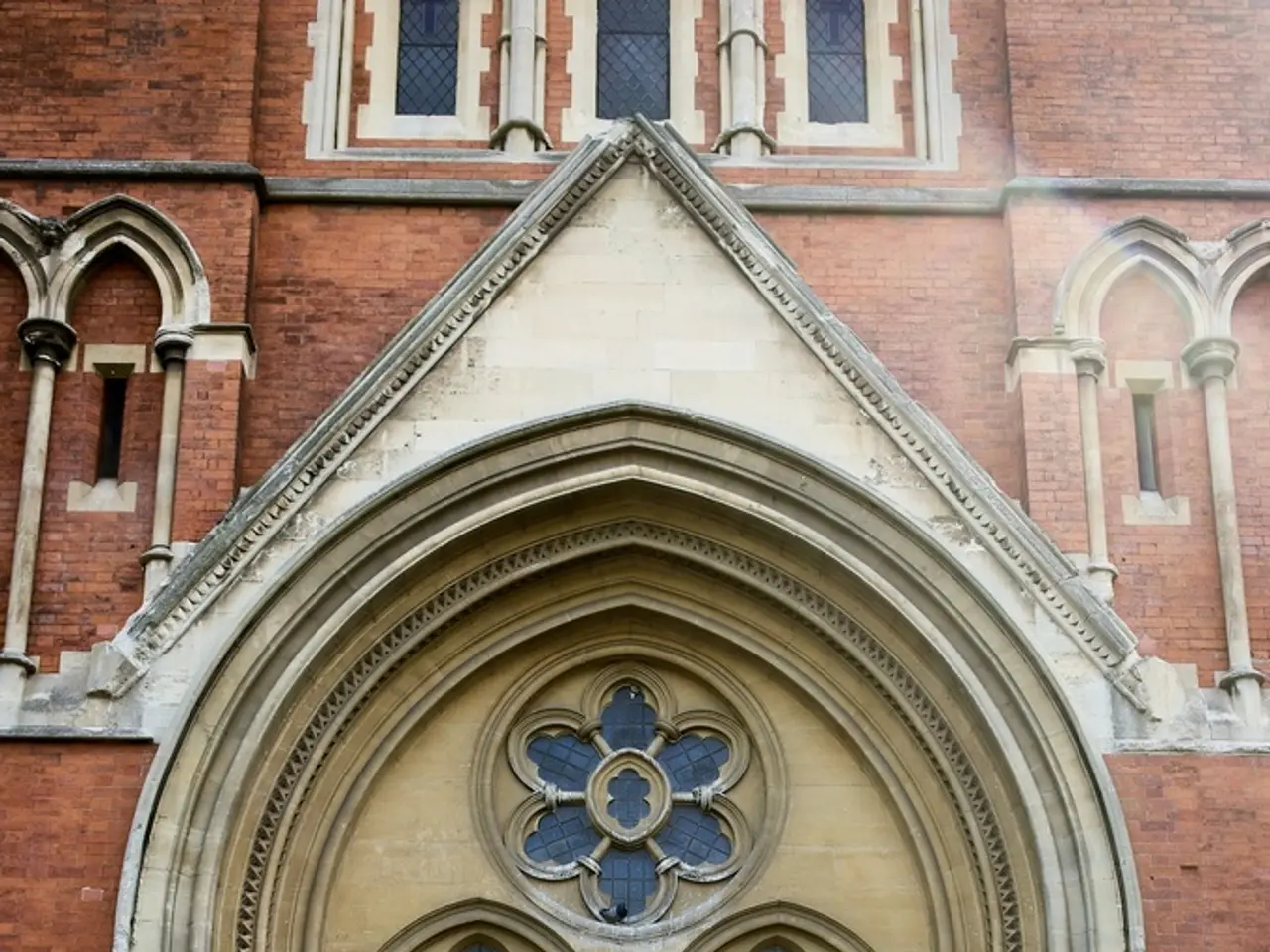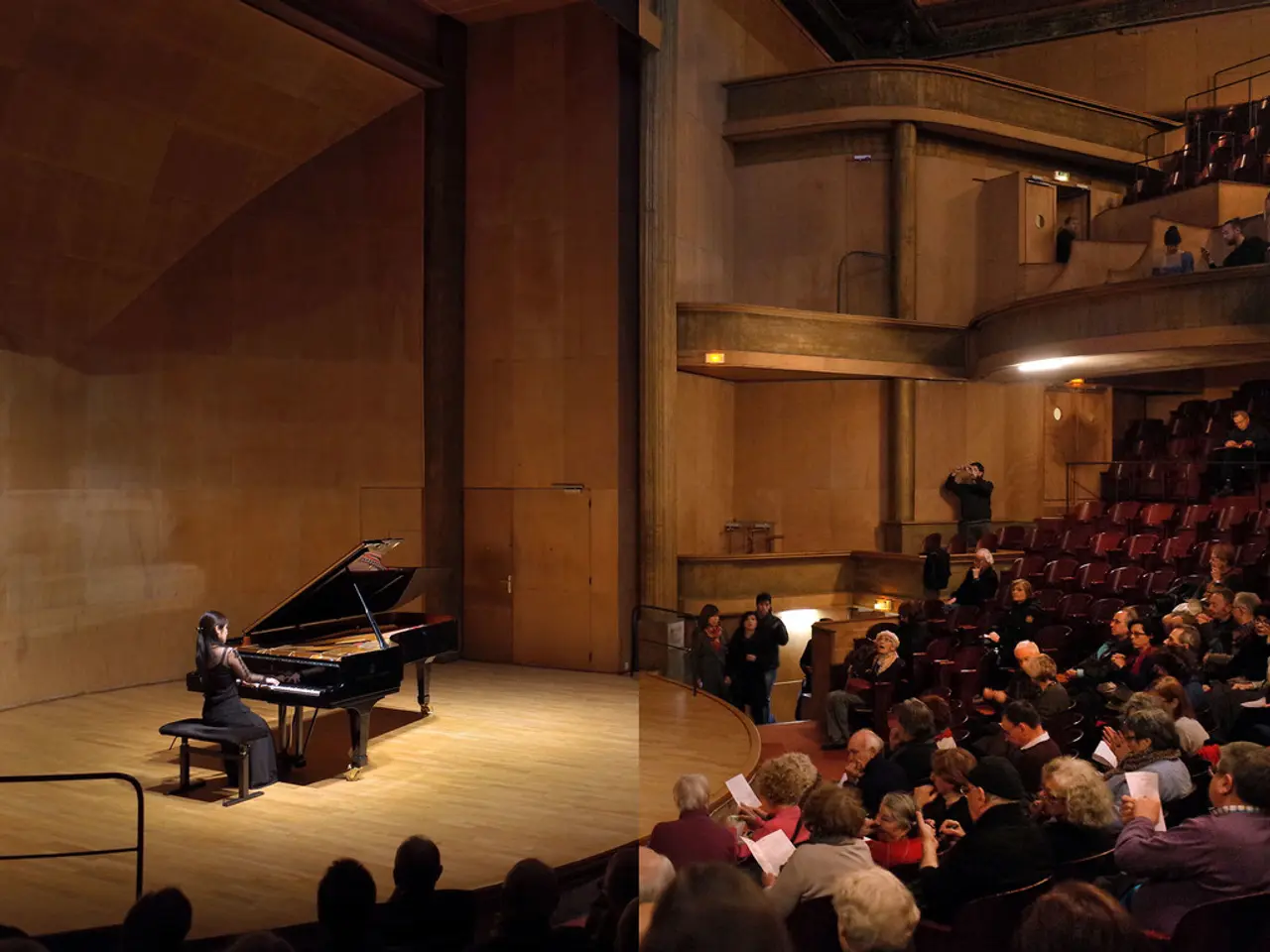Ongoing confrontation between Hamburg and Berlin regarding sanctuary for churches persists
In recent times, the issue of church asylum for Afghans in Germany has been a topic of contention. While churches offer protection to these individuals, local authorities and federal authorities have different stances on the matter.
Recently, Germany has seen a higher number of convicted criminals being deported to Afghanistan than Sweden. However, two of the three men involved in a recent church asylum case had already undergone a deportation and were therefore illegally in Germany.
The dispute over these three Afghan men, who sought refuge in a Berlin church community, has been ongoing. In spring 2025, they traveled to Hamburg and sought church asylum in a Berlin community, which was granted to them. Despite a written request from the Hamburg Migration Authority in May, the church asylum was not ended.
The Hamburg Interior Authority recorded a total of 111 notifications of church asylum last year, all of which were Dublin cases. However, the practice of church asylum lacks clear formal legal recognition or specific federal laws regulating it.
Despite this, authorities in several federal states have violated the previously respected church asylum by forcibly removing people from church premises. In the case of these three men, the Berlin police have not complied with the request for assistance from the Hamburg interior authority to remove them from the church asylum.
The goal of church asylum is to achieve a new review of the case by immigration authorities and to gain time to exhaust legal means. However, the Federal Office for Migration and Refugees (Bamf) rejected the church's hardship application, and the men did not have to fear deportation to their home country, but rather to the responsible EU member state.
The Left Party faction in the Hamburg Parliament has intervened in the dispute, with its leader Heike Sudmann criticizing Hamburg Mayor Peter Tschentscher for potentially endangering the rule of law and supporting right-wing views. Tschentscher had wanted the men to be returned to Sweden, following the Dublin Regulation of the EU.
At the federal level, a new law passed by the Bundestag in mid-2025 suspends family reunification for persons entitled only to subsidiary protection for two years. This law has been heavily criticized by churches and human rights groups due to concerns it forces vulnerable individuals into unsafe conditions.
In contrast, federal authorities have been actively coordinating deportations of Afghans convicted of crimes back to Taliban-controlled Afghanistan, despite political controversy. The church asylum practice does not legally exempt persons from deportation orders, as exemplified in a recent case where an Afghan man sheltered in church asylum was deported to Sweden after public disputes between church and authorities.
In conclusion, church asylum for Afghans in Germany is unofficially tolerated but legally uncertain and insufficient to block deportations. Simultaneously, federal regulations, including the suspension of family reunification for those with subsidiary protection, reflect a restrictive asylum policy strongly criticized by churches and human rights groups.
- The issue of church asylum for Afghans in Germany, while offering protection, lacks formal legal recognition and specific federal laws, making it an uncertain method to block deportations.
- Recently, a dispute surrounded three Afghan men who sought church asylum in Berlin, despite a deportation history, yet their removal was not carried out due to non-compliance from Berlin police with Hamburg's request.
- Despite political controversy, federal authorities have been lawfully coordinating deportations for Afghan criminals, even those who sought refuge in church asylum, demonstrating a policy and legislation that resembles a restrictive asylum policy strongly criticized by churches and human rights groups.








